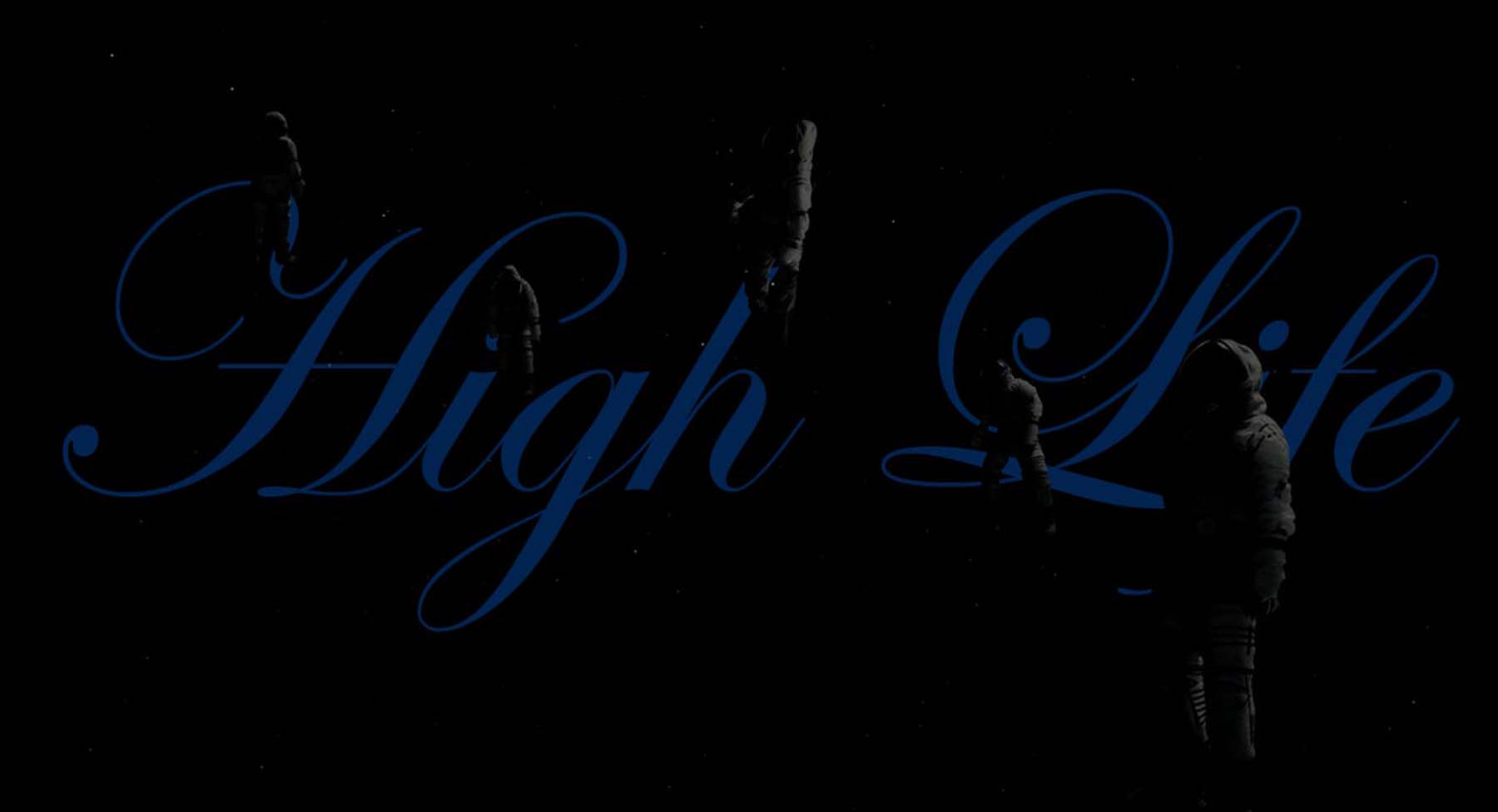I generally don’t mention movies I don’t enjoy in some way, form, or fashion. Why waste your time? I scour the interwebs, looking for new movies that will push you to THiNC. or challenge our perceptions in some way. But today, after watching Claire Denis’ High Life movie I am totally adrift. Lost in space at what I am supposed to think or feel about this movie. Halfway through I even decided I was stopping. I got up. Walked away. But holy cow if this movie isn’t a weaponized virus straight out of David Foster Wallace’s Infinite Jest. I think the movie literally got up, walked across my house, grabbed me by the hair, and hauled me physically back to the screen to finish it out.
And normally, when I bring you guys a movie, I walk you through the movie for the sole purpose of getting everyone on the same page. And then I throw various ideas that might explain it, so that we can discuss which one might fit the story and the movie we just watched. But this time, I plan to just talk about the various themes happening here, and the general confusion going on from beginning to end for me.
I find movies in a lot of different ways. Sometimes you recommend them to me, like all these movies right here that I am working my way through. Sometimes I watch Indie Trade rags. Others just by following actors that have a history of Indie movie brilliance. But one of the best way to find good Indie movies that will make you think is to just watch anything purchased and released by A24. They just have an absolutely brilliant track record. I’ve talked about them on this blog before. So I won’t belabor the point. But if you are one of those guys (like me) that demands proof, then how about: A Ghost Story, First Reformed, It Comes at Night, Ex Machina, Green Room, End of the Tour, Backstabbing for Beginners, The Killing of a Sacred Deer, Blackcoat’s Daughter, just so so so many good goodnesses going on right there. And I am only scratching the surface of A24’s oeuvre. But did A24 miss it with High Life? Cause, it may just be. But they have so many brilliant movies to their credit that I am wondering if maybe it’s just me that is missing it?
High Life Overview
The movie High Life is told in a jumbled, out of order fashion, that has become fairly de rigueur nowadays in our movie watching experience. (It would be truly fascinating to take a movie like Memento, and hand it to an audience from the 60’s. Movie makers have spent so much time training the viewing audience on how to watch movies, and what to expect, and the work necessary to watch a modern movie. I really do think a 50’s viewing audience would be disgusted with a Quentin Tarantino movie. I just don’t even think they would have the cinema experience to be able to handle modern movies. But I digress.)
So, our jumbled movie basically tells the story of convicts, murderers, put on to scientific space vehicles, in order to conduct experiments and space exploration. Personally, it sounds like a horrific idea…but maybe the price of near-light speed capable rockets will become a lot cheaper soon? Regardless, it appears, that this group of convicts are being sent to a nearby black hole to investigate the region. Or maybe investigate a black hole phenomenon? I was unclear. But as they head further and further into space they begin to realize that there is no way that they will ever be able to return to earth. We also realize that the medical officer, Dr. Dibs (played by Juliette Binoche of Clouds of Sils Maria brilliance, and Certified Copy), may just be, completely and totally, stark raving mad. Evidence mounts on this front when we realize that she murdered her children by suffocating them, and her husband by stabbing him. But her goal is to search for a way to reproduce, to extend the life expectancy of their microcosm.
But the larger story here is about a micro-society and its extreme entropic devolution if you will. It all begins with one inmate attempting to rape another. And then the response to that threat, and then the response to the response to that threat. Eventually, the only person that is left is Monte (Robert Pattinson of the duh… Twilight Series), and his daughter. And the story of how the child’s mother (played by Mia Goth of A Cure For Wellness, The Survivalist) came to be pregnant, is about as disturbing as the rest of it.
What Is High Life Actually Saying?
Is it possible that the movie High Life is telling us of the dangers of allowing the inmates running the asylum. The risks of an amoral runaway freight train…which is caused by allowing murderers and hardened criminals at the controls of society. Good thing we haven’t done that today, like at all. (Cough.) But maybe it’s just a morality play warning against society’s natural arc and decimation. (Pretty much every time I use the word decimation someone attempts remind me that the original meaning as for the destruction of 1/10th of a thing. Please, do not do this.)
Then there is a scene, after Monte visits another spaceship – which has been overrun by feral dogs – and there is no sign of human life on the ship – where he steps into the garden to shower in the falling water. It evokes an extreme likeness to the Garden of Eden. The lushness of the greenery, and the safety from contamination. But why? Why is this allusion made here at this precise moment? It’s almost as if, in a state of regression, society has moved from the garden, to societies, through technologies, and backwards all the way back to a re-occurrence of the garden. Could it be that the High Life movie is making a case for humanity’s downward digression? That we have reached our apex, and are now arcing over to nose into the ground all over again.
And what about that conversation between Monte and Dr. Dibs? The one where she thinks he believes her to be a witch? A Shaman of Sperm? Is there something else going on there? We know that Dibs is definitely some weird amalgam of the dark arts and medical practitioner. But is she a medical practitioner at all, now that we look back on it? Like really? She uses drugs to disable the entire crew. She keeps the crew on a low level sedative constantly. And she basically uses the men for her own whims.
But the Ending Man!?
I actually think I have a pretty good narrative understanding, right up until the end. Think about it, the arc of humanity goes from the garden, to a technological tower of Babel in space, and then it regresses back to its gardenic state. The message is simple – we are doomed to our past, we are destined to repeat our past failures, and no matter what technological duct tape we throw at it, it isn’t going to get any better.
So, yeah, I think I grasp that.
But when Willow (the baby) grows up, and it is only Monte and Willow eeking out a life, we are left wondering what kind of life they could possibly scrape by with. And the two of them finally decide they know what they ought to do. They should attempt to slingshot a black hole. I believe this was the original point of the mission. To ride a space hang glider skim board around the rim of this black hole. But we watched as Willow’s mother tried this earlier in the movie and her head exploded. So, um. What?
Well, I just had a crazy idea. Could it be that the ship, #7, is a metaphor for our dying earth. We see in other passing ships (like #9) where are future is going, and that is a burnt out husk of feral dogs devouring each other. And that this journey that we are all on, while at one point had a purpose, we realize that we were lied to. That it’s basically hopeless. And that our only hope is one, enormous, desperate measure, like flinging ourselves into the heart of a black hole?
I literally have no idea. What do you think the ending could possibly mean?
Edited by, CY



